Mozambique: Is Ossufo Momade looking for someone to blame for Renamo's downfall?
Watch: Mozambique open to support against terrorism – Nyusi
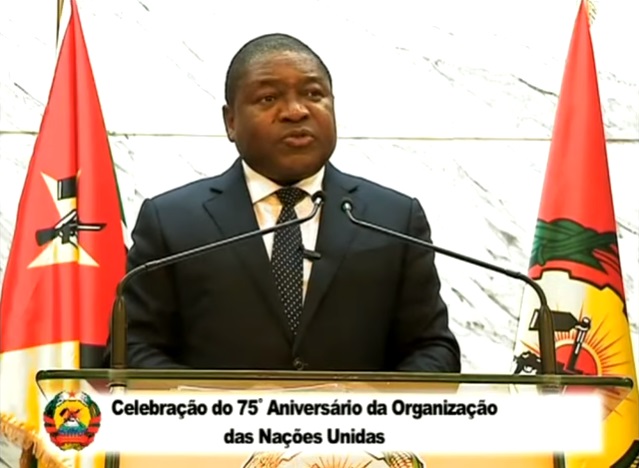
Screen grab: UN News
Mozambican President Filipe Nyusi announced on Wednesday that Mozambique is open to international support to combat terrorism.
He was speaking at the 75th session of the United Nations General Assembly. Because of the Covid-19 pandemic, the session is being held in a virtual formal, and so, like many other leaders, Nyusi was not in attendance physically, but sent a recording of his speech.
He said the enormous efforts Mozambique has made to consolidate peace and security “have been put to the test by terrorism in some districts of the northern province of Cabo Delgado, and armed actions by alleged dissidents from Renamo in parts of Manica and Sofala”.
The terrorists, he accused, “kill people in a heinous manner, cause mass displacement, destroy homes and social and economic infrastructures, loot goods from communities and keep women and children in captivity”.
As a result of the terrorist raids in Cabo Delgado, he added, “more than a thousand people have been murdered and about 250,000 have been displaced from their homes”.
The government had responded firmly, continued Nyusi, “by defending the country’s sovereignty and territorial integrity, and to protect the people and their property. It has also mobilised humanitarian support for the displaced”.
Since Mozambique is well aware that the terrorist activities in Cabo Delgado “have links with international groups involved in transnational organised crime, we have tried to deal with this phenomenon in cooperation with other countries and regional and international organisations”.
In this context, he added, “we welcome all initiatives and partnerships which help complement the efforts under way, seeking to contain the nefarious actions of the terrorists in our country”.
Nyusi stressed Mozambique’s commitment to multilateralism, which he regarded as “fundamental, when we consider that the economy of the world, and particularly of developing countries, has been severely lacerated by the effects of the Covid-19 pandemic. Restructuring the economy requires global, integrated and concerted interventions”.
He warned that “nationalism and isolationism in the face of a pandemic are a recipe for failure”.
Multilateral intervention, led by the United Nations, was also required in order to respond to other challenges, including climate change, terrorism, cyber-security, and industrialisation.
In today’s “global village”, Nyusi said, the boundary between national and international questions was ever less visible, “The transnational nature and interconnection of these phenomena demand a leadership which recognises that our interventions should take into account the intrinsic relation between national, regional and global citizens”, he declared.
Nyusi stressed Mozambique’s commitment to reform of the United Nations, and expressed concern at “the lack of progress in the inter-governmental negotiations so that reform of the Security Council may have results that are in line with the 21st century”.
Such reforms should make the UN “more representative, efficient and transparent”, which could give decisions taken by the Security Council “greater effectiveness and legitimacy”.


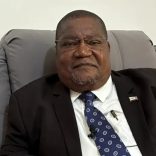
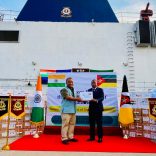
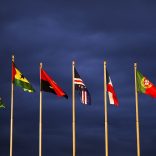
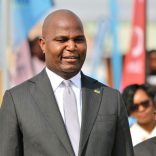
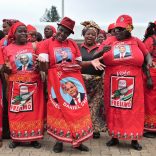
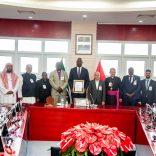




Leave a Reply
Be the First to Comment!
You must be logged in to post a comment.
You must be logged in to post a comment.